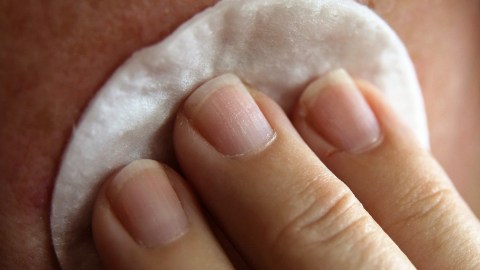Why are girls hitting puberty earlier? The answer could lie in the medicine cabinet.

- American girls have been hitting puberty at earlier ages compared to past decades.
- Chemicals found in common cosmetic products could be responsible for the changes, according to the results of a nearly 20-year study, which found that boys didn’t seem to be affected by the same chemicals.
- It’s still unclear whether these chemicals cause early puberty, but it might be worth avoiding products containing them until the research is conclusive.
It’s still something of a mystery why American girls have been hitting puberty at earlier ages compared to past decades. Finding the answer is important, considering early puberty is associated with health risks including depression, obesity, eating disorders and increased risk of breast cancer later in life. And though research suggests obesity and toxic stress likely affect the onset of puberty, those don’t seem to fully explain the phenomenon.
Now, a new study published in Human Reproduction suggests another answer to the long-standing question: chemicals called phthalates, parabens, and phenols, all of which are found in common cosmetic products.
In 1999, researchers began the Center for the Health Assessment of Mothers and Children of Salinas study, in which they took urine samples from mothers who had been pregnant for about 14 to 27 weeks. The scientists then tracked the pubertal development of the resulting 179 girls and 159 boys, obtaining urine samples from the children every nine months between the ages of 9 and 13.
The results showed that the girls born to mothers who tested positive for diethyl phthalate and triclosan while pregnant were more likely to hit puberty earlier. Also, girls who showed higher concentrations of parabens–preservatives used in cosmetic products–were more likely to show early development of pubic hair and breasts, and also to get their period at a younger age. These effects occurred about one month earlier, on average, for every doubling in concentrations of parabens, as Inversereports.
What do phthalates and parabens do to the body?
These chemicals could be jump-starting puberty because they’re known as endocrine disruptors, which can interfere with hormones, such as estrogen, and cause changes in bodily development.
Still, it’s too early to know exactly how phthalates and parabens might affect puberty in girls. The Center for Disease Control and Prevention says the chemicals aren’t known to be dangerous in low levels, but notes more research is needed to determine their health effects.
One possibility is that it’s the timing, not the amount, of exposure that influences bodily development.
“Many cosmetic companies argue that the level of a harmful chemical in any one product is not enough to harm you, on the basis of studies of chemical exposure in adults,” the Breast Cancer Action organization says. “However, science is finding the timing of exposure is crucial, and that even a very small dose of some chemicals can have serious consequences in children and young women who are still developing.”
If you want to be on the safe side, familiarize yourself with the various kinds of parabens and phthalates and try to only use cosmetic products without them. You can check out one list of such products here.





